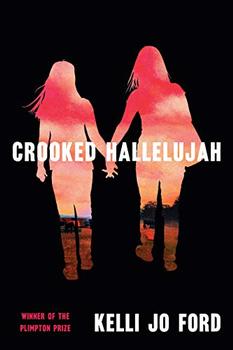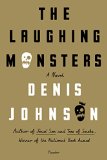Summary | Excerpt | Reading Guide | Reviews | Read-Alikes | Genres & Themes | Author Bio

Set in the Belgian Congo during the 1960s, The Poisonwood Bible takes its place alongside the classic works of post-colonial literature, establishing Kingsolver as one of the most thoughtful and daring of modern writers.
The Poisonwood Bible is a story told by the wife and four daughters of Nathan Price, a fierce, evangelical Baptist who takes his family and mission to the Belgian Congo in 1959. They carry with them everything they believe they will need from home, but soon find that all of it--from garden seeds to Scripture--is calamitously transformed on African soil. What follows is a suspenseful epic of one family's tragic undoing and remarkable reconstruction over the course of three decades in postcolonial Africa.
The novel is set against one of the most dramatic political chronicles of the twentieth century: the Congo's fight for independence from Belgium, the murder of its first elected prime minister, the CIA coup to install his replacement, and the insidious progress of a world economic order that robs the fledgling African nation of its autonomy. Against this backdrop, Orleanna Price reconstructs the story of her evangelist husband's part in the Western assault on Africa, a tale indelibly darkened by her own losses and unanswerable questions about her own culpability. Also narrating the story, by turns, are her four daughters--the self-centered, teenaged Rachel; shrewd adolescent twins Leah and Adah; and Ruth May, a prescient five-year-old. These sharply observant girls, who arrive in the Congo with racial preconceptions forged in 1950s Georgia, will be marked in surprisingly different ways by their father's intractable mission, and by Africa itself. Ultimately each must strike her own separate path to salvation. Their passionately intertwined stories become a compelling exploration of moral risk and personal responsibility.
Dancing between the dark comedy of human failings and the breathtaking possibilities of human hope, The Poisonwood Bible possesses all that has distinguished Barbara Kingsolver's previous work, and extends this beloved writer's vision to an entirely new level. Taking its place alongside the classic works of post colonial literature, this ambitious novel establishes Kingsolver as one of the most thoughtful and daring of modern writers.

If you liked The Poisonwood Bible, try these:

by Kelli Jo Ford
Published 2021
It's 1974 in the Cherokee Nation of Oklahoma and fifteen-year-old Justine grows up in a family of tough, complicated, and loyal women presided over by her mother, Lula, and Granny.

by Denis Johnson
Published 2015
Denis Johnson's The Laughing Monsters is a high-suspense tale of kaleidoscoping loyalties in the post-9/11 world that shows one of our great novelists at the top of his game.
It is a fact of life that any discourse...will always please if it is five minutes shorter than people expect
Click Here to find out who said this, as well as discovering other famous literary quotes!